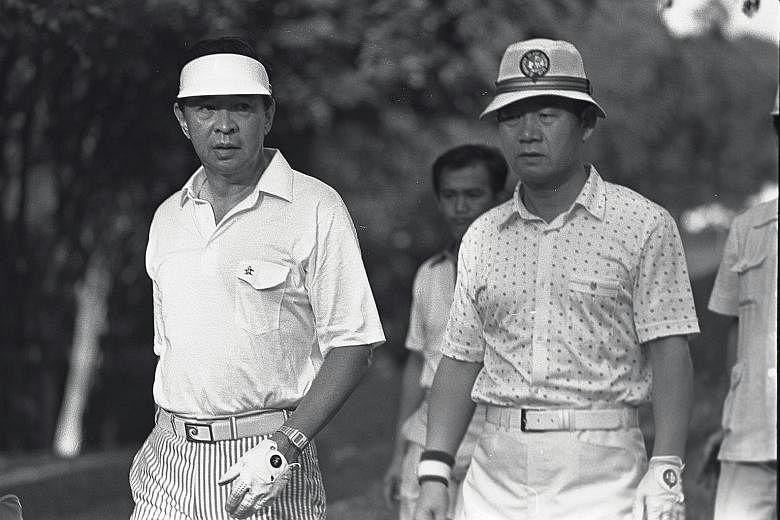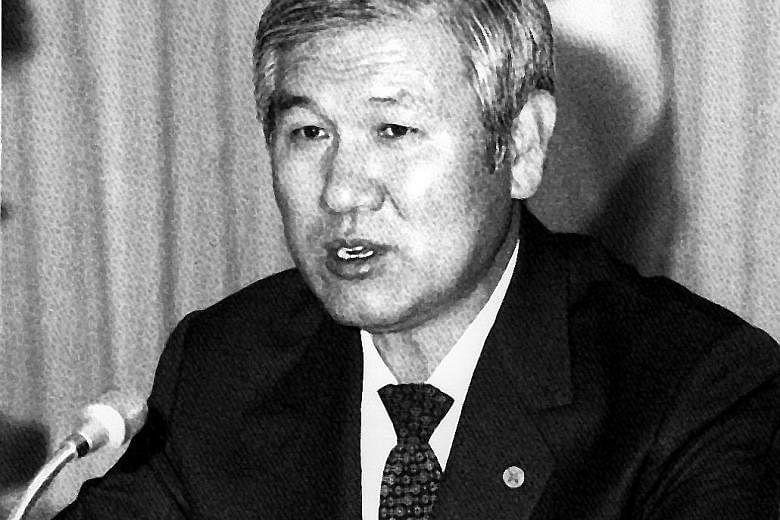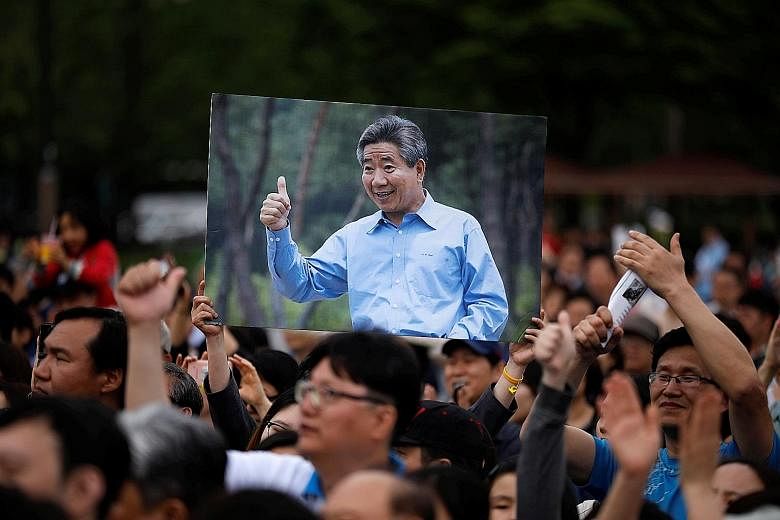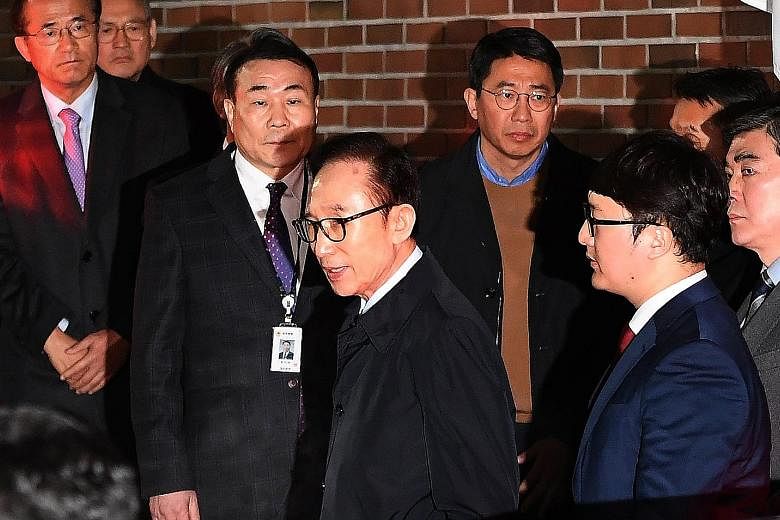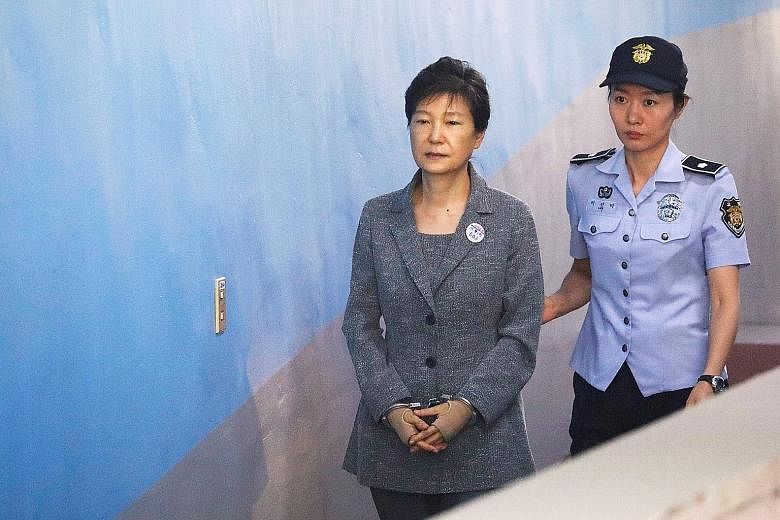SEOUL • The South Korean authorities have arrested a former president on charges of bribery, embezzlement and tax evasion, the country's second former leader to be imprisoned within the past year.
Lee Myung Bak, who was president from 2008 to 2013, was taken to a prison in Seoul after a court issued an arrest warrant.
Local television stations carried live coverage as prosecutors escorted him from his home in Seoul and took him to jail shortly after midnight yesterday.
His arrest came a year after his successor, former president Park Geun Hye, was arrested following her parliamentary impeachment on bribery and other criminal charges. The two former leaders are being held in separate prisons.
"I consider all this my own fault and feel remorse," Lee, 76, said in a handwritten statement posted on Facebook shortly before his arrest.
South Korea's current President Moon Jae In won an election to replace Park last May with promises to root out corrupt ties between politics and business that have bedevilled the country for decades.
In recent weeks, state prosecutors have questioned or arrested several of Lee's former aides as well as relatives and businessmen as they built their case against the former president. The former Hyundai executive has long been dogged by allegations of corruption, and his arrest had been expected since he was summoned and questioned by prosecutors last week.
Lee was accused of collecting over US$10 million (S$13 million) in bribes from various sources, including Samsung, the county's largest business conglomerate, when he was a presidential candidate and after he took office. Samsung has not commented on the case, although prosecutors have questioned one of its former vice-chairmen and raided his home.
Prosecutors say that Lee hid his ownership of a lucrative auto-parts maker under relatives' names and embezzled US$32 million from the business.
He was also accused of using his presidential power to help settle a legal case implicating the auto-parts company, getting a business conglomerate to pay US$5.8 million in lawyer fees, they said.
If convicted, Lee could be sentenced to life in prison.
Almost all of South Korea's presidents have seen their reputations tarnished towards the end of their tenure or during their retirement because of corruption scandals involving them, their relatives or aides. Lee is the fourth former president to have been arrested on corruption charges since the 1990s.
Park, who succeeded Lee in 2013, became the first South Korean president to be impeached by Parliament. She was formally removed from office and arrested last March.
Last month, prosecutors asked a Seoul court to sentence Park to 30 years in prison on charges of collecting or demanding US$21 million in bribes from big businesses.
In the wake of Park's impeachment, critics attributed the recurring corruption scandals at the centre of political power in South Korea to what they called the unbridled power of its "imperial presidency".
On Thursday, Mr Moon's government unveiled a Bill to revise the Constitution to curtail presidential power. In his proposed constitutional revision, Mr Moon suggested that the current, single five-year presidential term be replaced with a four-year term and that the incumbent leader be allowed to seek another term. But Mr Moon cannot benefit from the proposed revision and cannot seek re-election.
The proposed revision deprives the president of the right to name the chief of the country's Constitutional Court, handing that decision over to the court's justices.
It also reduces the president's power in appointing commissioners of the government watchdog, the Board of Audit and Inspection. It also curtails the president's power to grant special pardons, which critics said has long been abused to free business tycoons convicted of bribery and other white-collar crimes.
But Mr Moon will find it hard to pass his Bill through Parliament. His governing party has only 121 seats there, well short of the 195 votes needed for a constitutional revision. Even if the Bill is approved by lawmakers, it is also subject to referendum.
NYTIMES

